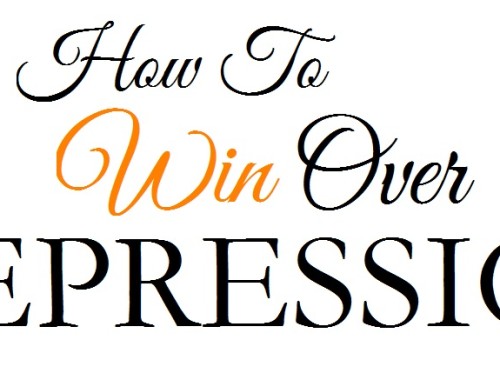This picture appears sometimes during the slide shows of my pastor’s sermons, along with several others– they’re all of people reading their Bibles, and the scenes they picture are calm, tranquil. Sometimes they’re curled up on their couch with a cup of coffee, sometimes they’re relaxing by a riverbank, just letting the words soak in– but all of the time there’s a gentle, beaming smile on their faces.
Isn’t the Word of God just beautiful? their faces say.
And I want to say yes, yes it is, but I can’t, and I feel the splinter in the back of my mind worm its way just a little bit deeper. Guilt sinks a little bit deeper into my heart, and the refrain read your Bible and pray every day and you’ll grow, grow, grow runs through my head on repeat, and I can still hear the voices of children in the fellowship hall echo against concrete floors and steel chairs.
I wrote a series on Christian fundamentalism, and as I wrote it, I asked to hear from all of you about what your experiences were like. What I heard back from many of you was that yes, the legalism is bad, but we learned so much. If we hadn’t grown up in fundamentalist churches, we wouldn’t be as familiar with God’s word, wouldn’t have countless verses, chapters, and psalms at the tip of our fingers, written on the table of our hearts. Using phrases from the Authorized Scriptures comes as naturally to many of us as breathing– they are scattered in all of our words.
And, initially, I agreed with you. I did receive an “overwhelming amount of information.” I found myself on rhetorical par with seminary students and pastors– I could converse about technical theological issues with the easy nimbleness of familiarity.
But then I had a conversation with a friend about churches and pastors and preaching styles and sermons, and I don’t remember much of it, except that he said that he “loved his pastor because he uses so much Bible when he preaches. He’s constantly referencing the Bible, everywhere.”
I didn’t know how to respond, because I’d heard a good dozen of this pastor’s sermons, and while his sermons were filled to the brim with the casually uttered verses that flowed out of him like water, I would shift in my seat as I listened, because it felt familiar. Like I’d heard it all before.
Slowly, I’ve grown to realize that we were right– horrifyingly, terribly right. We are intimately familiar with the Bible. Our Bibles are losing their covers, the bonded leather is crumbling away, pages are falling out, the gold edging is faded where we’ve thumbed through it countless times. Verses are underlined, circled– the pages are scarred with childish handwriting. For many of us, our histories are in our Bibles. There’s a record there of the sermons we’ve heard, the churches we’ve been in, the ideas we’ve held. Handwriting becomes older, neater, the phrases we jot down become more mature.
The church-cult I was raised in strongly encouraged all of its members to read the Bible through every year. I would always promise that I would, and I didn’t make it all the way through every year– but, out of the 10 years we attended, I read the Bible through at least six times. There have been many times where I’ve read through the Gospels, or the Epistles, in a single sitting, reading them in their entirety instead of parsed-out bits. We memorized Jude, II and III John, and many of the other famous passages together as a church, standing up every Wednesday night to recite them together as a body. Our “pastor” always grounded his sermons firmly in the Bible. I never heard him preach a single sermon that didn’t begin and end in Scripture.
And then we left, and my world shattered, and I haven’t been able to read my Bible since then.
Oh, I’ve studied it, in the sense that there have been biblical concepts that I was curious about. When I finally arrive at a place where I feel comfortable confronting one of my Dragons, I go to the Bible and I do my best to work it out.
I’ve made some fantastic discoveries, some of which I’ve shared with you.
It never fails to utterly astonish me that, even with all of my familiarity, even with all the Sword Drills and the Memorization Contests and AWANA and the constant stream of “the Bible says…” that I really had no idea what it actually says.
And I’ve read it as least half a dozen times.
How did this happen? How did I grow up going to church four times a week, grow up reading my Bible, go to a Bible college, take eight separate Bible courses, and come out on the other side so completely clueless?
And what I’ve been realizing, slowly, is that I never really read the Bible.
The Bible was just another tool, just another opportunity for fundamentalism to become an ingrained part of who I was. On top of the words I read in the Bible was layer upon layer of interpretation, of meaning, of what I was taught was the “correct” way to read it. I read those words with the black and white lens of literalism.
And when I read my Bible, the words that could have revealed a God of love, of justice, of mercy and compassion, were almost utterly obscured by a god of vengeance, wrath, judgment, jealousy, and righteousness. When I read my Bible, fundamentalism lay down on top of it and forced me to read through a glass darkly. The doctrines of fundamentalism cloaked and disguised things it didn’t want me to see– like the fact that Paul calls Junia “outstanding among the apostles.” I must have read those words. They’re right there, smack dab at the end of Romans. But I never saw them, never understood them, never once thought about what they could mean. I never once realized that the last good king, Josiah, went to the prophetess Huldah. Not Jeremiah, the weeping prophet, or Nahum, or Habakkuk. Huldah— a woman. Entire stories were completely erased– obliterated by the battle cry of sound doctrine.
I was taught to “rightly divide the word of truth,” but what I didn’t realize was that they were limiting me. Rightly dividing was, intrinsically, interpret anything you find according to the doctrines you’ve been given. If anything in the Bible seemed to come into tension with those doctrines, it wasn’t the Bible, no, it was just my interpretation of it, and I just needed to go back and rightly divide it this time.
All of this has left me with whispers and voices I can’t ignore when I try to read it. There are whole passages–entire books– that I have to avoid because I can’t read them without hearing another person inside of my head telling me what to think, what to see, what to believe.



